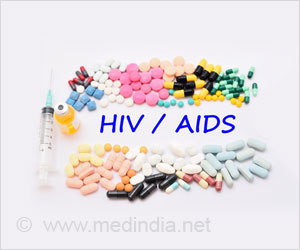Experts attending the 16th International AIDS Conference in Toronto have warned that Middle East and North Africa are at risk of plunging into a silent epidemic of AIDS.
Experts attending the 16th International AIDS Conference in Toronto have warned that Middle East and North Africa are at risk of plunging into a silent epidemic of AIDS.
Only 0.2 percent of the population in Middle East and North Africa carry the virus that causes AIDS. The region has the lowest rate of HIV infection in the world according to UNAIDS agency.Experts says many individuals at risk of infection are fearful of seeking an HIV test or if they are infected are unable to claim the drugs that could save their lives because of the stigma and discrimination that is attached to the disease and hence choose to remain silent.
Public ignorance about the disease, the region's young demographics, large movements of displaced people fleeing war and strife, and entrenched taboos about homosexuality have been identified as factors that could lead to a AIDS epidemic in this region.
Samir, a Jordanian man affected with HIV who attended the conference said the real problem is not a medical one. "We are not [deemed] normal, HIV is considered a punishment, we have no place in society," he said, referring to the way that Jordanians reacted to people with HIV. "What ought to be done is we should go to schools and universities and explain what HIV is," he said. "In my country 60 percent of people don't know what HIV is, they think they can get infected by a handshake."
Wafa Abu Ayyash from the Center for Sustainable Development and Community Health in Bethlehem, who conducted a poll 1,200 Palestinian students said that most of them had only a sketchy knowledge about the disease and said that the sympathy for sufferers is based on how they acquired the infection. Wafa said, "The attitude toward the illness is positive [only] if the disease happens because of blood transfusion," and added, "it shows the need to launch information campaigns and raise awareness, and to eliminate stigma. We shouldn't wait until the prevalence becomes higher."
Dr. Samir Anouti of the UNAIDS regional support team said that it was time for visible and vocal initiatives against HIV/AIDS throughout the region. He said "There is a low level of coverage for prevention, information, and services and that only 5 percent of those in need are receiving antiretroviral drugs and there is increased evidence of risks and vulnerability."
Advertisement











